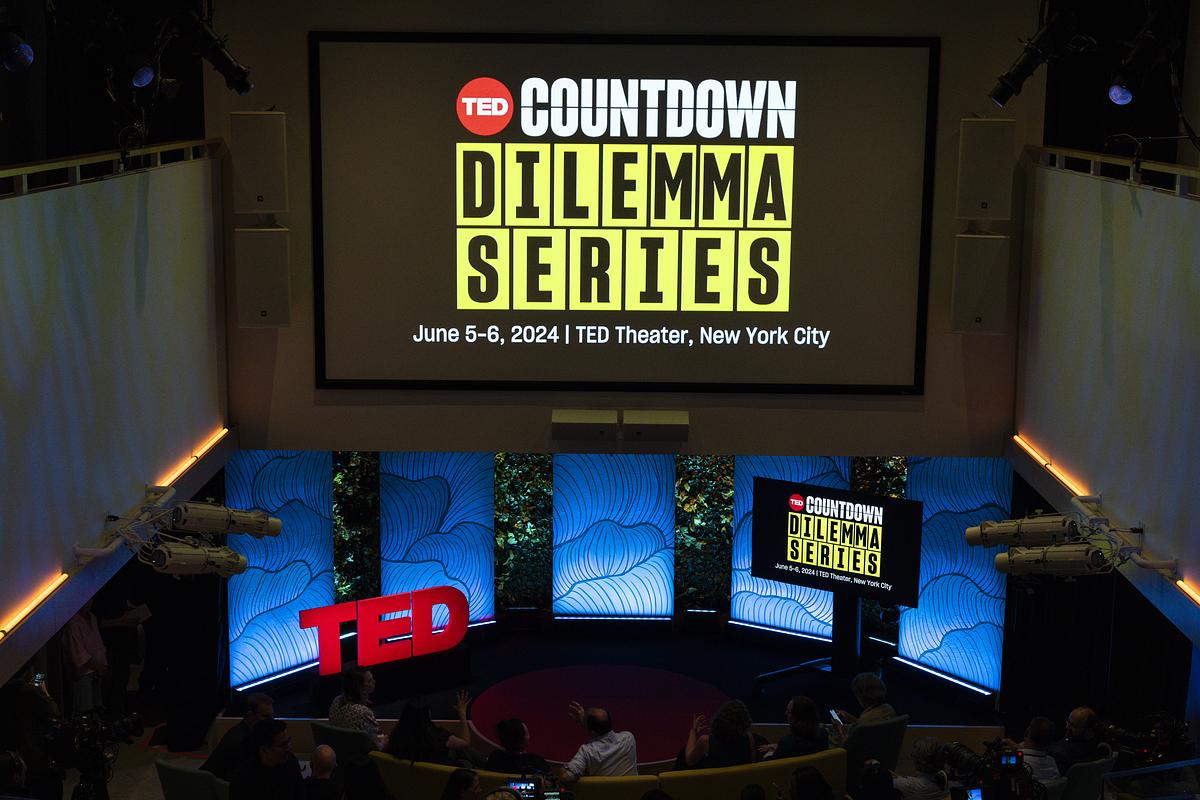
The stage is set for Session 1 of TED Countdown 2024 Dilemma Series: The future of food, hosted by TED’s David Biello and Nicole Ng, at the TED World Theater in New York City on June 5, 2024. (Photo: Gilberto Tadday / TED)
Can we nourish 10 billion people while restoring the earth? That’s the question on hand for the TED Countdown 2024 Dilemma Series on the future of food.
In Session 1, five speakers explored how we can turn the challenge of providing healthy food for everyone into solutions for regenerating nature and society. It’s a question riddled with competing views, from how to address food insecurity and waste to the myriad cultures surrounding food production and consumption. At the same time, the food we eat is the single biggest impact we have on the planet, and it’s not just on climate change. Let’s dig in.
The event: TED Countdown 2024 Dilemma Series: The future of food, hosted by TED’s David Biello and Nicole Ng
When and where: June 5, 2024 at the TED World Theater in New York City
Speakers: Jonathan Foley, Agnes Kalibata, Gonzalo Muñoz, Dana Gunders, Aline Sousa
The talks in brief:
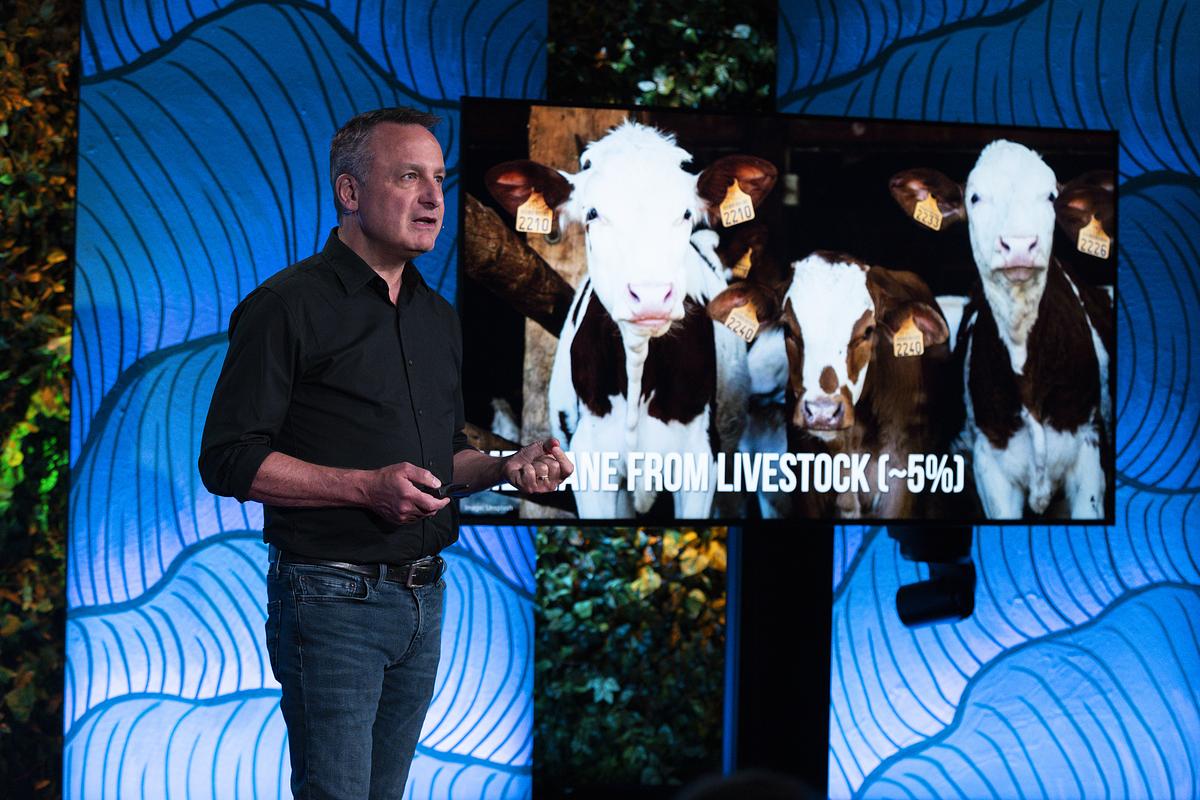
Jonathan Foley speaks at Session 1 of TED Countdown 2024 Dilemma Series: The future of food, at the TED World Theater in New York City on June 5, 2024. (Photo: Gilberto Tadday / TED)
Sustainability scientist Jonathan Foley gives an overview of the devastating environmental impact of conventional agriculture and its associated land use. What can we do about it? He presents a potpourri of solutions to help build a sustainable food system that nourishes the world.
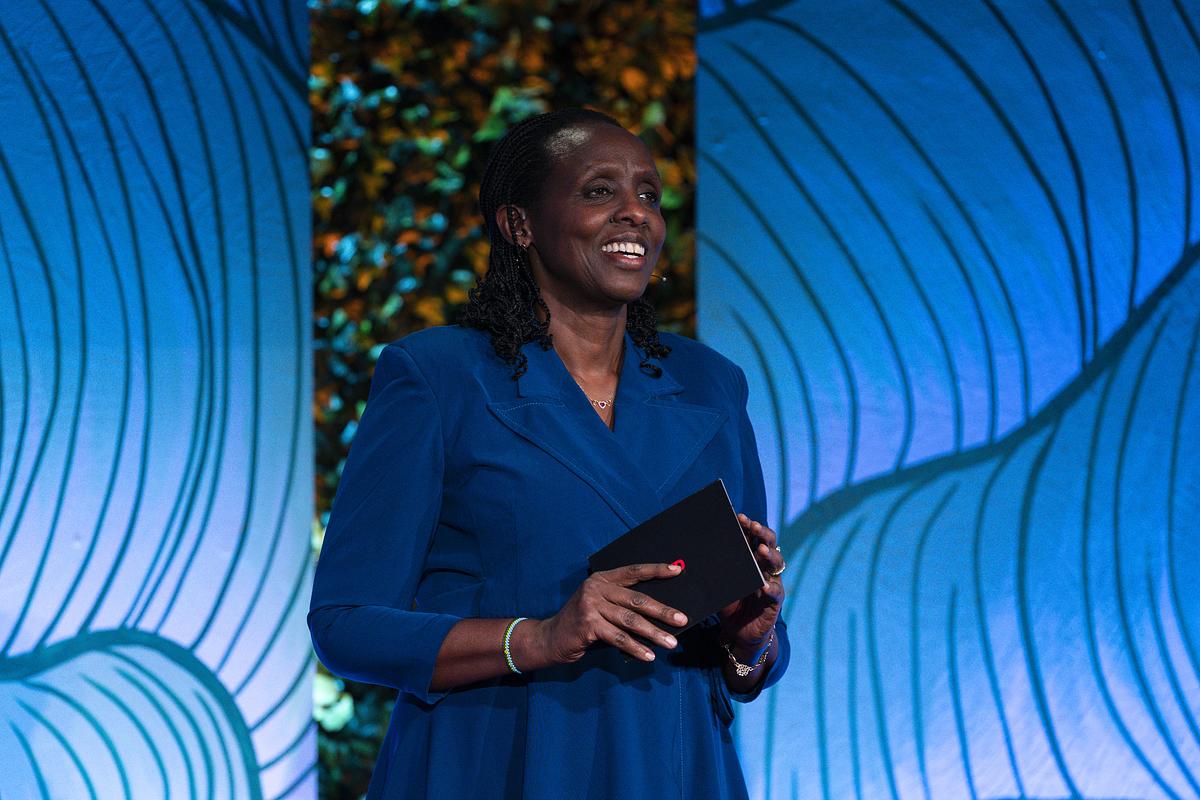
Agnes Kalibata speaks at Session 1 of TED Countdown 2024 Dilemma Series: The future of food, at the TED World Theater in New York City on June 5, 2024. (Photo: Gilberto Tadday / TED)
Smallholder farmers produce most of Africa’s food, yet they often lack the resources needed to thrive, says agricultural scientist and policymaker Agnes Kalibata. Working to empower farmers, she highlights how providing better tools, climate resilience strategies and market access can help nourish both people and the planet.
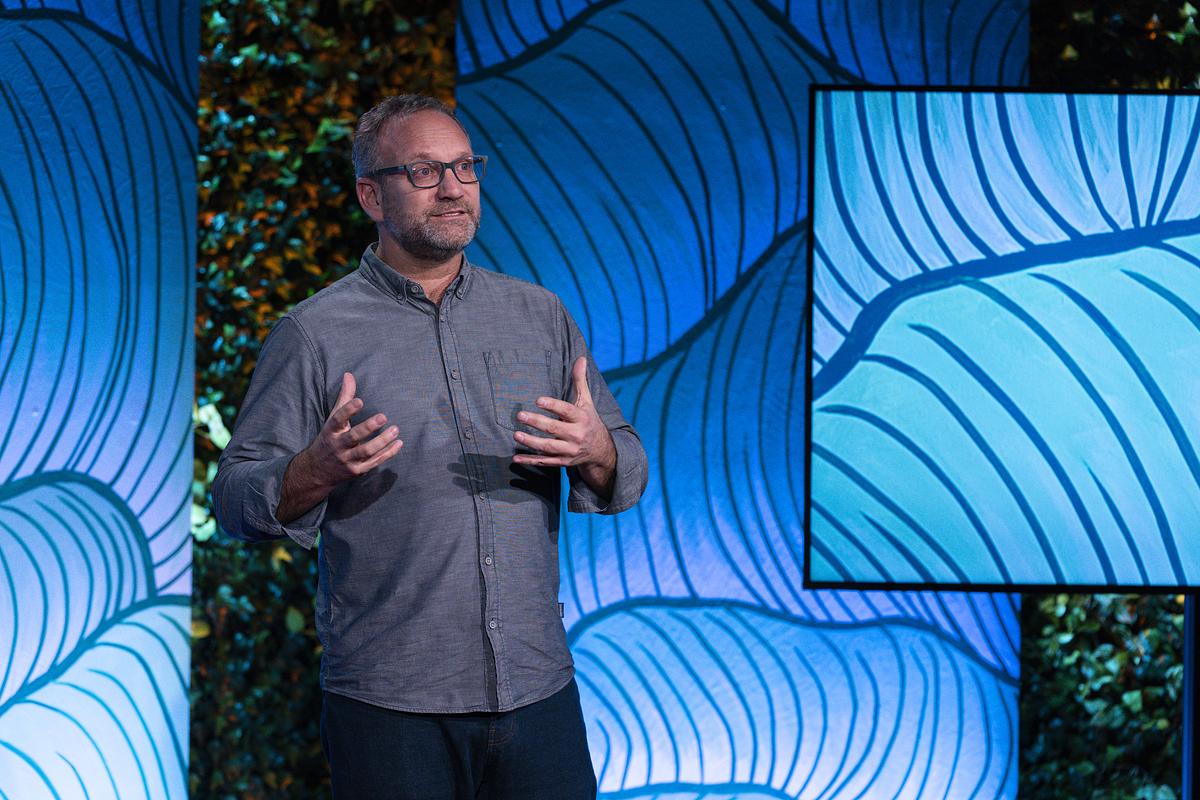
Gonzalo Muñoz speaks at Session 1 of TED Countdown 2024 Dilemma Series: The future of food, at the TED World Theater in New York City on June 5, 2024. (Photo: Gilberto Tadday / TED)
Chilean farmer and UN Climate Change High-Level Champion Gonzalo Muñoz explores the interconnectedness of food and politics, sharing how his team successfully negotiated two international pledges to make agriculture part of the climate solution, and outlines three goals for the effort’s success.
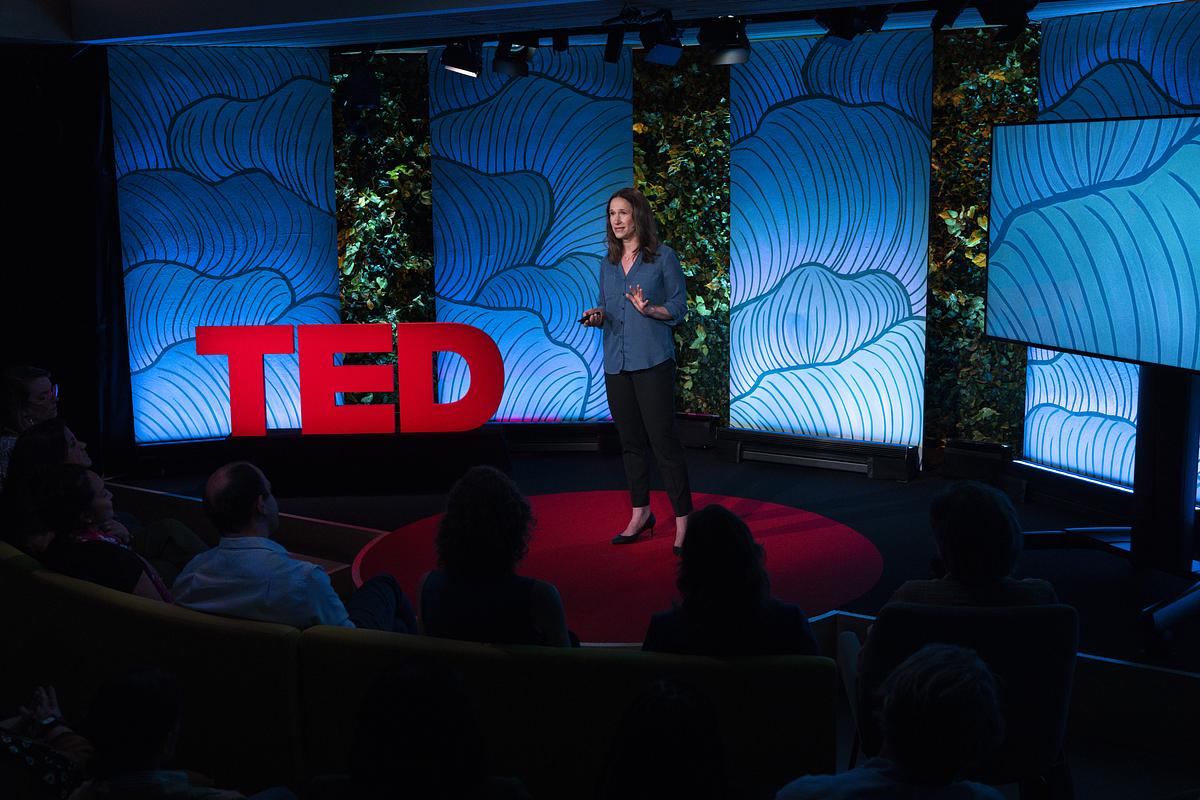
Dana Gunders speaks at Session 1 of TED Countdown 2024 Dilemma Series: The future of food, at the TED World Theater in New York City on June 5, 2024. (Photo: Gilberto Tadday / TED)
A trillion dollars’ worth of food is wasted annually, contributing significantly to greenhouse gas emissions, says food waste expert and executive director of ReFED Dana Gunders. From solar-powered cold rooms to phone apps that sell discounted restaurant leftovers, she shares innovative solutions and tips to keep good food from going to the trash.
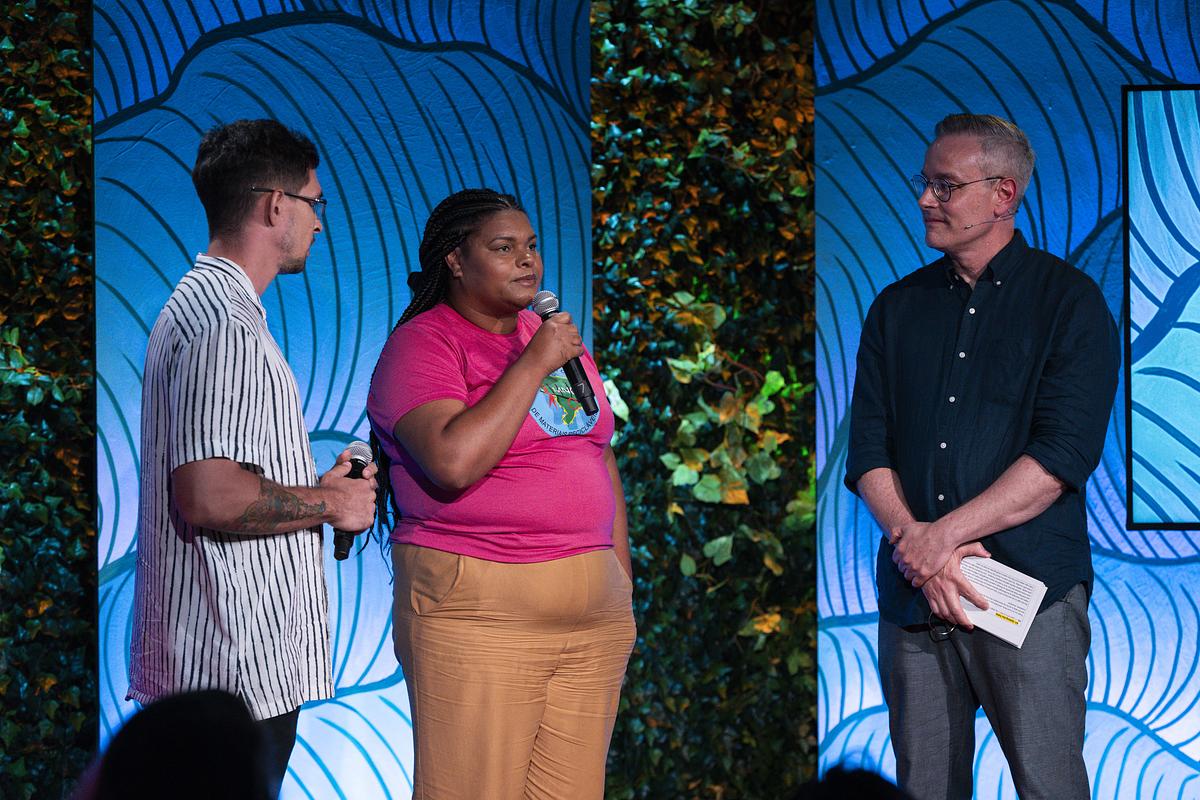
After delivering a pre-recorded talk, Aline Sousa (middle) and translator Victor Argentino (left) speak alongside David Biello at Session 1 of TED Countdown 2024 Dilemma Series: The future of food, at the TED World Theater in New York City on June 5, 2024. (Photo: Gilberto Tadday / TED)
The improper handling of waste is the third largest source of methane in the world, says Aline Sousa, but waste pickers like her help reduce this environmental impact. She dives into the monumental role of those who ensure recyclables, compostables and trash end up in the right facilities — and calls for broader support of their efforts at the local level.